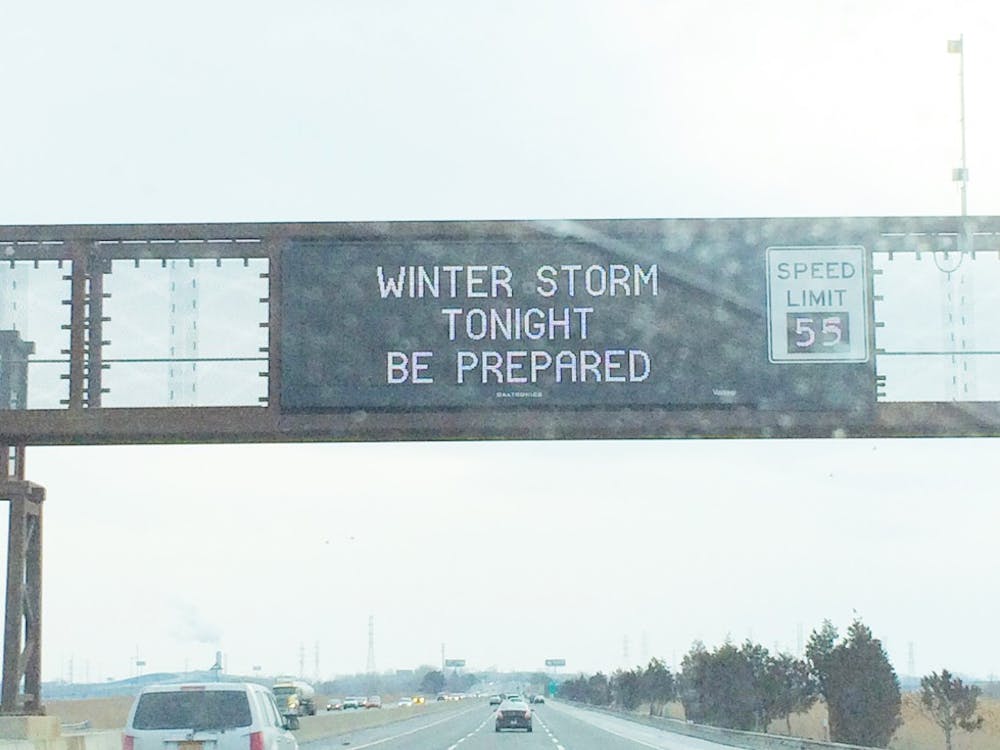By Ally Horine | Echo
When senior Miki Sir left Iowa on Sunday to return to Taylor, she did not expect having to stop and stay at a hotel in Galesburg, Ill. A winter storm that dumped 8-10 inches across the Midwest left her stranded during her long trek back to campus.
"The roads were extremely icy and sometimes poorly plowed," Sir said. "The worst was the wind. It would blow and make it impossible to see anything. Semis and cars were in ditches everywhere."
Eventually, Sir made the decision to get off of the roads and stay at a hotel until conditions cleared up, causing her to miss class the following day. Like Sir, many students were stuck at home or faced treacherous road conditions as they ventured back to Taylor.
In an attempt to help students get to school before the storm hit, the university opened residence halls Saturday night and made sure the Dining Commons was prepared to serve students returning early.
"When bad weather threatens, we monitor alerts and advisories issued by the Indiana State Police, the Grant County Emergency Management Agency and the Indiana Department of Homeland Security, as well as multiple national and local weather forecasts," Provost Jeffrey Moshier said.
To decide whether the university remains open or closes, Moshier relies on a team of advisers including the vice president for student development, the vice president for business administration, the campus chief of police and the director of media relations. Each member of the team assess the situation by checking local stations and discussing options with their respective teams. All deliberation tries to provide a complete input to aid in the decision-making process. This becomes difficult when students are traveling outside of the monitored areas.
"Because we are a residential university and in most situations the vast majority of our students are safe in dorms and have access to dining services, our first priority is the safety of commuting faculty, staff and students when it comes to decisions about closing the campus," Moshier said.
Bad weather rarely forces the university to close. According to Moshier, in the past 16 years campus has only closed three days, and all three were last year.
Senior Kelsey Emery and some classmates also traveled to Arkansas for their J-term break. Due to inclement weather, they left early and divided their trip back to campus into two days, staying in Morton, Ill., on Saturday night and returning to campus Sunday afternoon.
"When we left Illinois on Sunday morning, the roads were pretty slick," Emery said. We saw 17 cars in the ditch from Morton to Upland. Once we got farther into Indiana, the roads improved."
This particular snow storm arrived at a complicated time: at the end of J-term break, when many students were traveling back to campus. When the university issued a tweet at 3:14 p.m. on Sunday stating that classes would resume, students had to make the decision to brave the roads or miss the first day of spring semester. According to the student handbook, travel difficulties are considered unexcused absences and can influence a student's final course grade.
To combat students traveling in risky conditions, faculty were notified via email to excuse all students absent due to weather. Students, however were not notified of this decision.
"I think because Upland didn't get the kind of snow I saw, it made sense for them not to cancel," Sir said. "But I wish they would have sent an email to students excusing absences for this particular storm since it was so widespread and so many people were gone for the break. Looking back it was so dangerous and scary. I wish I wouldn't have tried to drive through it."





